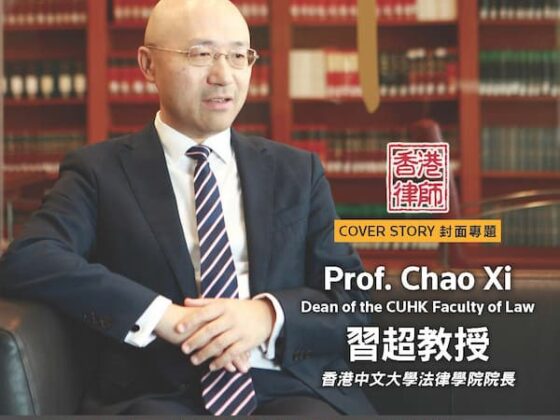On 31 August 2023, the Court of First Instance handed down the Judgment of NF v R [2023] HKCFI 2233, shedding new light on how the children of same-sex couples will be treated under Hong Kong law.
Background
NF v R concerns an application for a declaration of parentage by the son of a lesbian married couple. The couple, R and B, was married in South Africa in 2019. After their marriage, they went through a medical procedure known as reciprocal in vitro fertilization (“RIVF”) in South Africa. An egg was extracted from R and was fertilized by a sperm doner who has renounced his parental rights and obligations. The embryo developed from the fertilized egg was transferred to B’s uterus and carried by B.
In 2021, the baby, K, was born in Hong Kong. On K’s birth certificate, the gestational mother, B, was listed as the “mother”, while the “father” was left blank. Since K’s birth, B, R and K have lived together as a family.
The application was brought by B, acting as the next friend of the child, K. The Secretary for Justice opposed the application. The Official Solicitor (“OS”) was appointed as amicus curiae to address the Court on the issues of law with special focus on the interests of K. The OS supported the application.
The issues
The issues concern the power of the court: whether the court has the power to make the said declaration under the current legal framework, and if so, whether it should do so. There were 3 options discussed: Section 6 of the Parent and Child Ordinance (Cap. 429) the High Court’s inherent parens patriae jurisdiction, or some other form of relief.
As a starting point, the court made clear that the relief sought in this application, a declaration, is not to create, confer or alter rights but merely indicate what they have always been. As a result, the current application was not an appropriate forum to review whether the current legal framework is constitutional, nor issues such as justification and proportionality. It was only appropriate for the court to interpret the current laws and decide whether the power to give such declaration has been conferred upon the court.
The High Court’s decision
The court held that it was unable to make the declaration under Section 6 of the PCO, which is a general provision by which a person can apply to the court for a declaration that he/she is in law a parent of a child. This is because by the principles of the statutory interpretation, Section 6 must be read together with the remaining provisions within the same statutory framework, set out in Part V of the PCO, which expressly preclude there being two female parents.
Pursuant to Section 9 (Part V of the PCO), if a pregnancy results from medical treatment, the gestational mother is always to be regarded as the “mother” of the child. However, in the case of surrogacy, the biological mother may apply to be regarded as the “mother”, in place of the gestational mother, when certain conditions are met (Section 12, Part V of the PCO). The PCO was not drafted to cater for cases of same-sex parentage. Therefore, by operation of the statute, either the gestational mother or the biological mother shall be regarded as the mother of the child. These two sections apply to each other’s exclusion. The application therefore could not succeed relying on Section 6 of the PCO.
Turning to the alternative route of parens patriae jurisdiction, the High Court has the inherent jurisdiction to make a wardship order, declaring that the State is parens patriae (“parent of the nation”) to a child. The child subject to the order would be a ward of court. Clearly, such power of the court is aimed to care for those children who are not properly taken care of by their parents or guardians, such that the State needs to step in to offer protection to the children. The court held that this was not an appropriate case to invoke such power, as B and R have been taking very good care of K.
The above analysis left the court in a difficult position. The Judge observed that the legislative purposes of PCO are, amongst others, to provide equality at law for all children regardless of their parent’s marital status and the circumstances of their birth. It is specifically enacted to offer equal protection to all children.
However, the PCO effectively discriminates against K. If R were male, R would have been recognized as a parent. Therefore, K was unable to have a co-parent, genetically linked to him, simply because of R’s gender and the sexual orientation of B and R.
By contrast, a man who did not provide the sperm used to create a child born within wedlock could apply to be regarded as a “father” in place of a sperm donor. Such opportunity was not available to R in this case, who is genetically linked to K and psychologically and socially K’s parent. This contradiction was absurd.
Despite the inability of the court to “read into” the PCO a new category of parent that would allow R to be K’s parent, she considered that the common law provided an answer. The Judge reviewed the law in relation to the meaning of parent at common law and considered that it “courts should keep an open mind on the definition of “parent” as societal norm and medical technology may change”, and that the concept of parent and common law was not ‘fossilised’. Applying the common law definition, the Judge considered that parents in RIVF cases, and in particular R, are “parents at common law” on the basis of their genetic links to the child.
Further considerations
This judgment is undoubtedly a huge step forward for achieving equality for the LGBTQ+ community and their children in Hong Kong. Prior to this judgment, a child of a same-sex couple had been unable to have his/her parents both regarded as “parents” in law.
If the child was adopted, the practice was for one party in the couple to apply for the adoption order (and upon the grant of the order be regarded as a parent-in-law), and for the other party to then apply for guardianship. If the child was born pursuant to an authorized surrogacy arrangement, again, only the biological father or mother will be regarded as the parent-in-law. The other party could only acquire guardianship rights by application to court.
The NF v R judgment, in turn, offers the possibility for both parties in the relationship to be declared parents in law. It appears that, at the current juncture, this is only available to lesbian couples who entered the same RIVF arrangement as B and R did. However, following the reasoning in the judgment, it is hard to imagine why only children born under such arrangements should be offered the said protection, but not, for instance, child born to male same-sex couples, or to lesbian couples where the gestational and biological mother are the same person.
Is there any justification behind this differential treatment? Is the non-biological parent, in any way, inferior to the biological parent such that they can only obtain a guardianship order? Seems there is none, especially if the Court is always happy to regard non-biological parents as parents in law in adoption orders.
It can be expected that, with the NF v R judgment, new paths may be opening for making parental declarations and/or parental orders to both parties in a same-sex relationship.
In NF v R, the Judge observed that there is a lacuna in the PCO which creates a discrimination against children such as K, which has to be filled by the Legislature. Following the earlier judgment of SHAM TSZ KIT (岑子杰) v Secretary for Justice [2023] HKCFA 28, in which the CFA gave the Government two years to put in place in alternative framework recognizing same-sex partnerships in Hong Kong, we do hope that the said lacuna can also be addressed in this alternative framework, and that this will not be a long wait.
If you require assistance or have any query related to IVF and/or parental rights, please do not hesitate to contact our Family team.
This article is for information purposes only. Its contents do not constitute legal advice and readers should not regard this article as a substitute for detailed advice in individual instances.
The article was co-written by Frances Tsang and Azan Marwah of Pantheon Chambers




